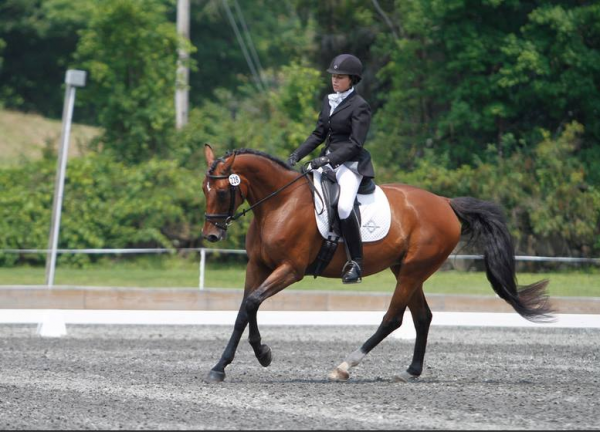
Earlier this month, myself and Dr. Rob Udewitz worked with talented equestrian athletes at the United States Equestrian Federation (USEF). We got to visit the USET Foundation in Gladstone, New Jersey, meet the coaches involved in training, and tour the beautiful facility. During the workshop, we introduced several talented athletes, their families, and coaches to a few different sport psychology topics relevant to their sport.
We talked about how sport psychology skills such as visual imagery, mindfulness, self-regulation, and pre-competition routines can influence performance. The athletes talked a lot about how the intense stress and pressure of competition can make them forget about details of their execution they have rehearsed in the barn. We talked about how imagery can help to make the transition from practice to competition smoother. Specifically, imagery can help emotionally (practicing feeling how you want to feel at that moment) and cognitively (eventually, you are no longer thinking about what you have to do next because it is automatic).
At the end of our workshop, we even hooked up some athletes to our biofeedback equipment. The athletes enjoyed seeing how breathing, attention, and stress all interact to produce physiological changes in their body. Some coaches even opted to test their arousal-regulation skills! Contact BTNY to learn more about the relationship between sports psychology and performance.
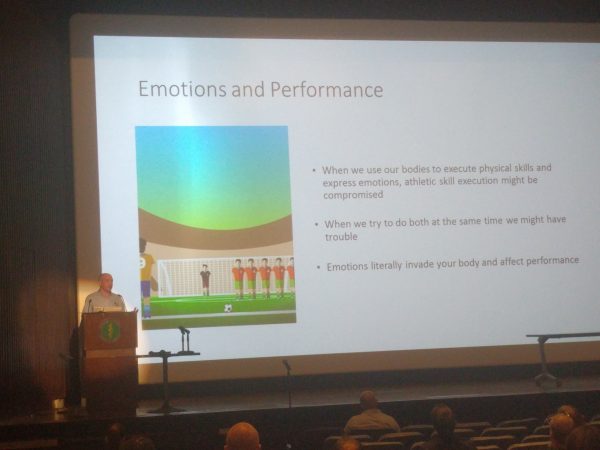
I would like to thank the Sports Performance Center at NYU Langone Health for inviting me to give a speech at the Greater New York American College of Sports Medicine fall meeting on The Science Behind the Mind-Body Relationship in Sports. In this presentation I, Itzik Zur, Ph.D., discussed the nature of emotions, how they could affect athletic skills execution, and presented our latest research on the effects of emotions on fencers’ performance.

“As a professional ballet dancer and athlete, my 18-year-old daughter found herself at a mental roadblock. She desperately needed tools to push through the challenges she faced which threatened to end her budding dance career. Dr. Udewitz provided the keys to unlock my daughter’s confidence and embrace her talent in a whole new way. Dr. Udewitz’s approach is inspired, he listens intently, responds with intelligence and care, and is skilled at getting to the core of the problems using proven “state of the art” methods. My daughter’s confidence and positive outlook on life have returned and she is now ready for the next chapter in her life.”
Kathryn, a grateful mother”

The connection between a person’s spirit and their success is a clear one. It is the spirit that has motivated the human race, from the dawn of its history, to prevail and overcome challenges and face down difficulties.
Fighting Spirit is a concept that describes the mental state in which a person is prepared to cope with a challenging situation and does not shy away from the difficulties they face, even when the odds are against them. A warrior will demonstrate fighting spirit when training or in battle. A patient with a severe illness will display fighting spirit when coping with the disease. An athlete will show fighting spirit when faced with a difficult and challenging opponent. Fighting Spirit is a supreme and revered expression of the human soul’s ability to overcome, transcend, and attain the unattainable.
The fighting spirit is a clear example of a case where several mental states coexist simultaneously. These mental states may include feelings of anger and frustration along with feelings of optimism and hope. All these feelings coexist with the perception that one can overcome and successfully cope with the challenges ahead.
The question then arises as to what additional factors might determine whether or not this condition will support optimal performance. For example, stress, because of its stimulating effects, may have a positive effect under certain circumstances, while under other conditions it may have an adverse effect.
Research in the field of sports psychology shows that the mediator variable that regulates the relationship between the mental state and the quality of performance is the degree of perceived self-efficacy. Self-efficacy is an individual’s perception of their ability to adopt behavior that will lead to a particular outcome. In other words, it is one’s belief in their capacity to perform a task. A person with high self-efficacy is someone who recognizes and values their ability to cope with a particular task.
Another division in the study of performance and their connection to the mental state is the nature of the task. Different jobs require different motor skills on the part of the performer; these motor skills are defined as gross and fine. Under the category of gross motor skill are crude activities that include running, walking, crawling and other physical activities involving the large muscle groups. As a whole, gross motor skills do not require much accuracy or coordination on the part of the performer. Under the second category are actions belonging to fine motor skills that require high coordination and precise muscle control.
Studies show that a high physiological arousal – expressed in increased heart rate and muscle tension, cold sweat, rapid breathing, and tunnel vision – can have a different effect on the quality of performance of various motor skills. Fine motor skills can be harmed by an increase in physiological arousal, whereas gross motor skills are less sensitive. For example, in a study by Robazza and Bortoli (2007), successful rugby players experienced anger as a useful emotion because the players felt confident in their ability to constructively control, and possibly channel, its energizing effects towards their performance. These rugby players, who, in addition to the feeling of anger, also had a perception of high self-efficacy, utilized the effects of elevated arousal toward better performance.
The fighting spirit consists of several mental states that interact and exist simultaneously. A performer may be stressed and angry in addition to being determined and enthusiastic. Performers who perceive themselves as highly capable of carrying out the task and possess control over their abilities will better channel the energies that this variety of emotions evoke within them and will benefit from this ability.
Therefore, a coach, leader, manager, and teacher who can cultivate among their students and peers a sense of authentic high self-efficacy will further instill within them strong foundations of self-control. This foundation can then help them to cope with a broad range of tasks successfully.
By Itzik Zur, Ph.D.
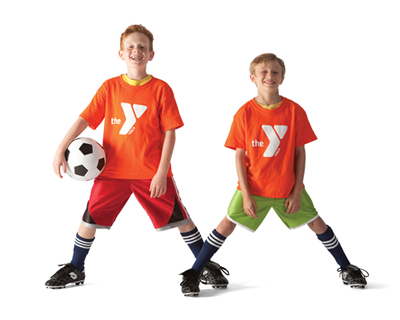
This article is for any parent with children in competitive sports; for any parent who is closely involved with their child’s world of sports; for any parent who has the best interest and future of their child in mind. The article focuses on the adolescent age range of 11-19.
Being frequently approached by parents who seek advice about their child, I tried to deliver here the gist of the most important things about child psychology in the context of competitive sports.
I will begin with the commonality between most parents who are closely involved in their child’s world of sports. In the beginning, when the child becomes involved with sports at a young age, the parents’ involvement mostly ends with driving the child to practice or paying the sports club. Later, their involvement gradually deepens. As the child grows older and perseveres in their sports field, the parent finds themselves involved in additional subjects, such as: the position of their child in the team, the attitude of the coach and the management towards the child, victories and defeats, wins and losses, the influence of sports on schooling, social life, and so on.
Since the parent’s involvement is a gradually deepening process over the years, the parent unwittingly takes on the additional roles of coach, manager, psychologist, doctor, and more. The parent in fact becomes an “expert” in a wide range of subjects.
This taking of responsibility by the parents in such a large number of roles is not always in the child’s best interest. Indeed, there are famous athletes whose family’s limitless involvement helped them reach the highest levels (e.g. the Williams sisters). Still, there is a greater number of athletes who managed to make those achievements with less intense family support, and there is an even higher number of athletes who suffered at this exaggerated involvement and struggled to fulfill their true potential as a result.
Successful athletes are mostly characterized by their will to succeed in their field – regardless of their environment. Parents can be a promoting and assistive factor, but cannot replace the “fire” that has to burn inside the child. As soon as the child loses their authentic internal will to succeed and advance in sports, if the will to succeed in their field is no longer burning in their bones, then no support, no pushing and no sincere and informed explanations may help.
Then what can parents do in order to preserve the child’s love for the sport they practice?
It is very important to create, as much as possible, a separation between the child’s life in sports and their life at home. In sports – the child is exposed to perpetual criticism, pressures, and a competitive atmosphere. Therefore, the home must be a place of refuge for them from tension and criticism. The child has to feel that the home and their parents are a safe and supportive place, and not someone else at the club who criticizes and analyzes their abilities after practice or a game. A child who knows that following a weak performance they have somewhere to derive power and mental peace, will develop better mental immunity and stamina, and will become emotionally available to get better at sports. Love that only depends on the level of their performance will encourage a sense of tension and disquiet in the child that will accompany them always.
Losing concentration, restlessness, violence and anger are examples of common behaviors from young players during a game. In most cases those behaviors are expressions of tensions and mental stress that stems from the fear of the imminent criticism after the game (especially if it is a bad game). A young player who knows that among family members they will not have to deal with questions and defend, regardless of the game’s score, will be able to display better calm and concentration in a game, and perform better.
Following are several principles that may be incorporated in daily life:
1. Feedback and game analysis – after a match, adrenaline is high, passion is at a peak and therefore things are not always spoken with consideration. It is recommended to wait for at least half a day before discussing the game. No matter what the outcome was, after a game you need to rest, eat and indulge.
2. Respecting the system – a parent who communicates to their child that they respect the system (coach, management, professional team) will enforce the child’s self-confidence since the child is supported by this same system. This behavior also covertly teaches the child that even though the system may not be perfect, problems can be solved in an appropriate and acceptable way that will not harm their personal progress.
3. Nurturing a sense of responsibility – be supportive, but let your child deal with the consequences of their actions. Responsibility is ultimately with the child. A player who from a young age learns to take responsibility for their actions (without those around them hurrying to solve their problems for them) will develop an independent and mature personality, which is necessary both in and outside of sports.
4. Developing a varied personality – it is recommended to treat the child as a complex and varied person, and not just a player. Sometimes people forget that the child is much more beyond just a player, with wants, difficulties and other interests that do not necessarily relate to sports.
5. Finally, it is their life – if the child made any decision that is unacceptable to you such as switching teams, a conversation is a good and important tool you can use to express your opinion and to try and convince them, yet there is no room to feel hurt or guilty even if you had already invested many hours in their current path. This is their life and their wishes, and whatever they learn in sports they will be able to apply in the future in a variety of other fields. Success has many varied faces.
By Itzik Zur, Ph.D.
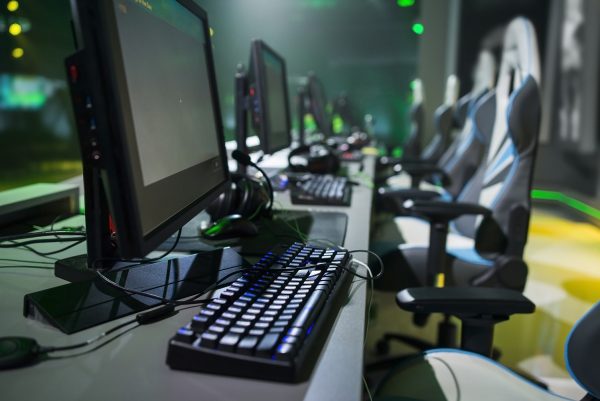
By 2018, the eSports industry is expected to generate $1.9 billion in revenue. With fans all over the world, the future of eSports is promising and likely to become a truly global sport. A professional eGamer often plays and practices up to 16 hours a day, every day, and competes in a breakneck pace environment. To win, they must perform many quick actions and demonstrate rapid decision-making and communication skills, a demand that is unlike any other sport. Therefore, these gamers must utilize any available mental resource to excel in such highly demanding conditions.
Consequently, a professional eGamer performs under great physical and mental strain for many hours. In general, researchers in the field of performance psychology have found that the process of regulating and controlling unpleasant emotional reactions, such as anger, consumes a lot of mental resources. As a result, eGamers may be prone to frequent emotional fluctuations, more so than athletes in other sports.
The good news is that the nature of eSports, being a computer-based online activity, enables coaches and performance psychology professionals to follow, monitor and provide immediate, as well as moment-to-moment, post-performance feedback. We can learn which situations cause an eGamer to experience anxiety or anger and then provide the tools necessary to either utilize that emotional response towards better performance or prepare strategies to regulate their response. For example, in my Ph.D. research, I demonstrated that anger could increase a performer’s response-time when channeled correctly.
Furthermore, we can collect psychophysiological activity by measuring an eGamer’s heart-rate, respiration, skin-conductance, skin-surface temperature, and muscle tension. We can then determine from this data whether the performer is experiencing good stress (alertness) or distress (anxiety). With this understanding, we can then improve the player’s awareness of what triggers specific emotional reactions within them and provide the mental skills and strategies necessary to help them communicate efficiently and calmly with their team mates, perform better, and improve their overall well-being.
Thanks to the eSports setting, professionals in the field of performance psychology now have the ability to pinpoint that exact moment that triggered a particular emotional reaction within a performer. This setting also allows us to gain an in-depth view of the mental and physiological state in real-time and to conduct a post-performance investigation. This flexibility provides an avenue to new and exciting possibilities that have never existed before, and perhaps improve an eGamer’s level of performance, personal, and professional well-being dramatically.
By Itzik Zur, Ph.D.
Mental preparation for the New York City Marathon to achieve your race potential.
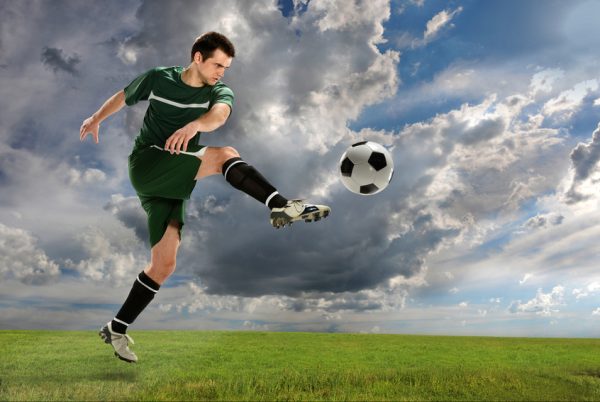
Game management is not an easy task, but a position that requires coaches to be focused on many factors at once, and to react to them in real time while unpredictable events unfold. An awareness of the basic principles that relate to the mental-psychological elements that a competitive game involves will help the coach to reduce the amount of energy required to manage the game, and will significantly help players stay focused on the game and its goals.
These principles, which I will describe below, relate to the manner in which coaches communicate with players during the game, and to the way in which they can maintain a particular pattern of real-time instruction that allows them to keep players focused, and as a result also improve game management. These include the dictation of the preferred style of playing, timing replacements, and mostly delivering game instructions to players so that they win the match.
To understand how these principles took shape, I will begin by generally describing what concentration is and how it behaves. Concentration is our ability to pay attention to a certain task (on the field, listening to something, learning, and so on) while filtering internal and external factors that do not relate to performing that task. The better an athlete’s concentration, the more they will filter out “interferences” that do not relate to their mission. For example, a football player about to shoot a penalty kick will display higher concentration and be able to filter out external sounds such as the crowd, and also internal noises, such as thoughts running through their head. One feature of concentration relates to the way it operates. The brain cannot focus on two things at one time. The illusion of divided attention (the ability to concentrate on several things at once) is, in fact, a rapid movement between two or more stimuli, when in every fraction of a second the brain focuses on one thing, and one thing only. Subjectively, a person might believe they can concentrate on several things at once, but a close examination shows that they are only moving quickly from one thing to the next, and back.
Another feature of concentration relates to its duration: high concentration consumes much energy from the brain’s resources. The brain always seeks to save on energy and therefore takes a short break whenever it is possible, even for a millisecond, to recharge and rest. While you are reading this article, your brain takes a microsecond break every time you move from the end of a line to the beginning of a new one.
Thus, the game-management principles that I detail here will need to meet the need to keep the player focused on tasks that relate to the match, as every diversion of attention to other things will become a disruption, as we cannot concentrate on several things at once. Also, very short mental rests during the game are essential for the player to allow them to recharge the mental resources which will help them perform the next concentration-intensive task.
Principles for strengthening and maintaining concentration in real-time:
1. Pre-match briefing – at this stage, the ability of the player to take in instruction is limited. Therefore the coach must focus on one or two principal directions and no more, as to what they expect the player to do. This way the player can remember the instructions, focus on them and perform them. A large number of directions such as: “I expect you to do this and that and this and that” cause confusion; the player will spend too much time thinking about them, and the resulting performance will look like more than they can chew. When the coach gives the player one direction they focus the player’s thinking to that task; a large number of instructions given at once cause the player’s mind to flutter between various thoughts, which impedes on their concentration.
Conclusion – before they go on the court, give each player one or two directions and no more. For example: “I want you to focus on defending the other team’s number 5.”
2. Style of instruction that I do not recommend during games – the form of instruction during a match has to be practical, to drive the player’s concentration and focus back. A player who during the match heard from the coach something like: “that is not how you pass” will spend the next minutes thinking about how to pass correctly, which would help in practice but only disrupts during a game. The player will divert their attention to how to pass, and not to events on the court. In fact, the coach now suffers a loss of half a player for a few minutes. Another type of instruction that damages the player’s level of concentration is the “why” group of queries, for example: “why aren’t you going on defense,” “why don’t you do what I tell you,” “why are you doing this or that.” “Why” questions cause the player to instantly divert their attention to a flood of internal thinking like: “the coach is not happy with me,” “what does the coach want from me,” and more and more. Ultimately, unanswerable questions, in most cases (why is it like that? Because it is). “Why” type directions are not practical, they do not help to drive the player back into focus and do not contribute to the coach’s goals.
Conclusion – directions given by the coach during the game have to be practical and relevant to the actions expected from the player, and not derisive or defiant in any way. During a match, criticism creates a flood of thoughts that do not contribute to concentration, and as long as they are not performing well, this can only damage their performance even further.
3. Style of instruction that strengthens and maintains concentration – this type of instruction is defined as task-oriented guidance. Its goal is to direct the player’s attention to performing the task at hand. Its style is practical, and its beauty is in being short, simple, devoid of criticism, and in helping the player to focus their attention on what is expected of them, helping them to ignore any internal or external distractions. As a coach, I want to tell my player what I do want them to do in a focused and succinct manner. For example, “I want you to move on the line”, “pass inside the yard”, “go to defense”, “pay attention as you move right”, “focus when you throw”, “pressure the opponent”, and “stay calm” (as opposed to “don’t stress out”). When a player receives task-oriented instruction like that, their attention immediately shifts from wherever it had been to the task at hand.
Conclusion – the competitive arena is full of internal and external stimuli that often divert the player’s attention. A practical task-oriented instruction, which is about what I do expect from them, will focus the player and help them concentrate.
4. Dosage – the number of instructions given during the game is also important. An excess of instructions may cause an information overload. Game instructions should be given moderately in a way that does not burden the player. Here, the coach’s acquaintance with the players has a significant role. Some players need a greater number of instructions, and others less. Also, an excess of guidelines does not allow the player to take mental breaks that are necessary to recharge.
In summary, the communication style of the coach during a game influences the quality of concentration of players for good or worse. By following the principles that encourage concentration, you will help the players to achieve their best. Also, because this style of instruction is short and focused, it does not steal time spent on explanations, does not waste the coach’s energy, and helps them to stay alert and focused on what’s happening on the court.
By Itzik Zur, Ph.D.
Led by Dr. Itzhak Zur, Behavior Therapy of New York is conducting a collaborative project with the Institute for the Psychology of Elite Performance at Bangor University, U.K. The project investigates the relationships between psychophysiology, emotion, and athletic performance.
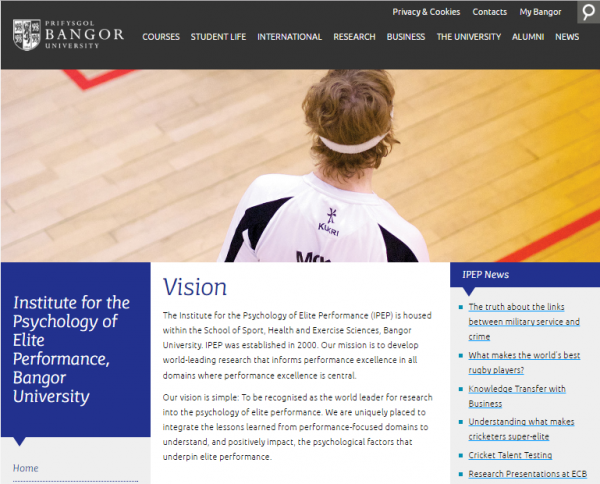
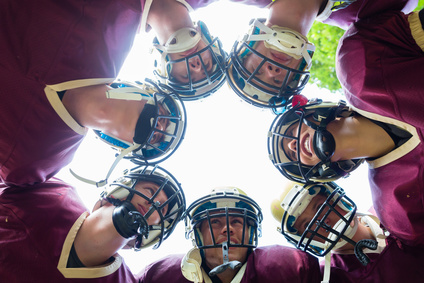
A SMART goal is a goal that is:
Specific
Your goal should be as specific as possible. Ambiguity in our goals makes it easier to ‘slack off’ when we are pursuing them. For example, saying your goal is to “lose weight” is unclear and allows for wiggle room in the effort you put towards achieving it. Instead, set your goal to “exercise three times a week for 45 minutes each.“ The more vivid our description of the goal, the more likely we are to achieve it.
Measurable
You should be able to objectively measure your goal. Referring to the example above, you will know you hit your goal if you in fact exercised for 45 minutes at the frequency you wanted throughout the week. Additionally, pick how much weight you want to lose and at what frequency (e.g. two pounds a week) If your goal is too vague, it will be difficult for you to measure it.
Action-Oriented
Describe your goal with action verbs. Referring to the example above, it is better to describe your goal as, “I will exercise three times a week” rather than, “I want to be in better shape.” Further, outline the steps it will take for you to accomplish your goal. Figure out what short-term goals you will have to achieve along the way to hitting your long-term goal. For example, maybe you have to get a gym membership first, and map out a schedule of when you will exercise before you get into your routine.
Realistic
A good goal should be difficult to achieve but not too difficult that it is impossible. Because you will be setting a difficult goal, it is important that you be able to adjust it along the way. If you find yourself falling short of what you set to achieve, check-in and see if you need to adjust your goal downward or increase the amount of effort you are putting forth.
Time-Bound
Pick a date when you would like to accomplish this goal by. Once you have picked an end date for your goal, you can map out some of the short-term goals you need to accomplish along the way.
SMART goal setting works because it directs your attention to the most important behaviors you need to execute (e.g. losing weight feels less overwhelming when your attention is re-directed to exercising three times a week). Good goal setting can help mobilize your effort and prolong your persistence (e.g. you hit your two pound loss for the month, which inspires you to work at it for another month). Lastly, it can foster the development of new strategies you come up with to accomplish your goal (e.g. trying out a new exercise class or routine).
It is easy to get discouraged or distracted when pursuing goals, so makes sure you keep in mind what you want to achieve at the end of all your work, why you want to achieve it, and how you are going to achieve it.
Laura Kirschner M.Ed.



